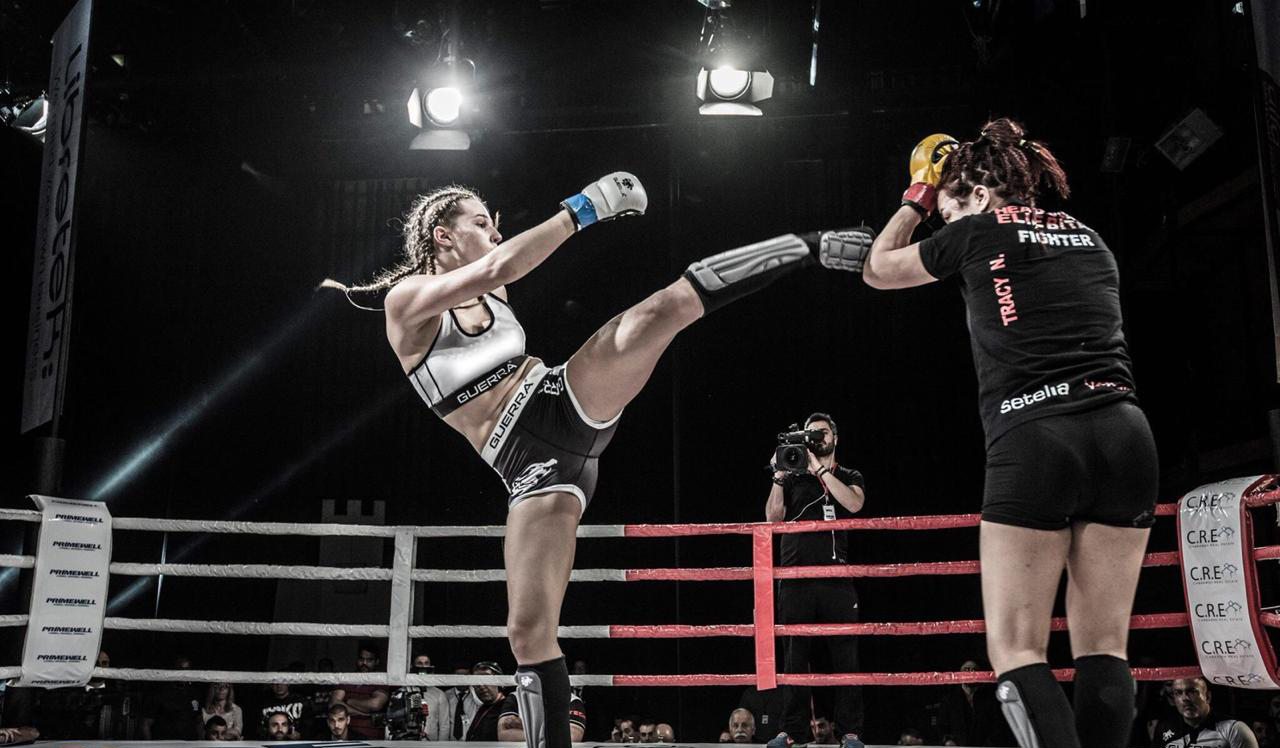Hello ladies and gents this is the Viking telling you that today we are talking about
Lebanon’s Women Warriors: Martial Arts Meets Rousing Resilience
In recent years, increasingly more women in Lebanon have been practicing martial arts, both in gyms and in tournaments. Despite their reputation for being traditionally ‘masculine’ sports, women extol its many benefits, both physical and psychological.
On a balmy Tuesday night, to the booming beat of poppy house music, a group of young Lebanese men and women is using their legs and arms to hit each other with razor-sharp focus. Although only about a third of the group consist of women, they are clearly a force to be reckoned with at this Muay Thai [Thai boxing] training session.
Despite their increased popularity, many people still regard martial arts as masculine and thus seemingly incompatible with femininity, especially in Lebanese patriarchal society, where conceptions of what it means to be a woman are still quite traditional and rigid.
“Outside of the gym we are so feminine but when we train, we let out another side. We let out our anger,” says Denise Khouri Chalouhi, a biology and biochemistry graduate student.
Although, “like most people,” law student Yara Dahrouge was convinced boxing would make her physique more masculine, she is now quick to dispel that myth: “Through this training I got a new body shape, not like a man at all, but much stronger and more toned: I now have abs and muscles everywhere, even in my feet, it’s amazing.” And, she adds, unlike training at a gym, Thai boxing is so much fun that she actually looks forward to it even after a long, exhausting day of work.
Farah was born and raised in The Netherlands to a Lebanese father and an Italian mother. Having become formally fluent in film in Bologna, she majored in Media & Cultural studies at the University of Amsterdam. After honing her skills as a journalist at The Daily Star Lebanon, Dutch radio and Belgian television, her friends and family bullied her into pursuing a career as a modern-day hakawati-cum-writer.
As a freelance journalist, she seeks to illuminate the myriad tiny stories that make up the fabric of society. Farah enjoys learning about Lebanese culture through Seinfeldesque taxi drivers, being told off in French by immaculately dressed tetas and drowning in the comforting cacophony of colours, sounds and scents that is Beirut.
Though the training sessions are mixed-gender, many women prefer to spar with other women, but not for the reasons you might expect: “Often, when you train with a guy, he thinks you’re going break if he kicks you a little harder, so I actually train better with another woman,” Chalouhi says.
More than the physicality of it all, the women at this Muay Thai training session emphasize the way in which their sport enables mental and personal growth.
“In Lebanon, people think women are not confident enough to face a man,” says Vanessa Rizk, a law school graduate, “but Thai boxing gave me more self-confidence and now I can face any man in any situation,” she says, “even in the courtroom.”
And as always have a chilled day from the Viking

Comments
Post a Comment